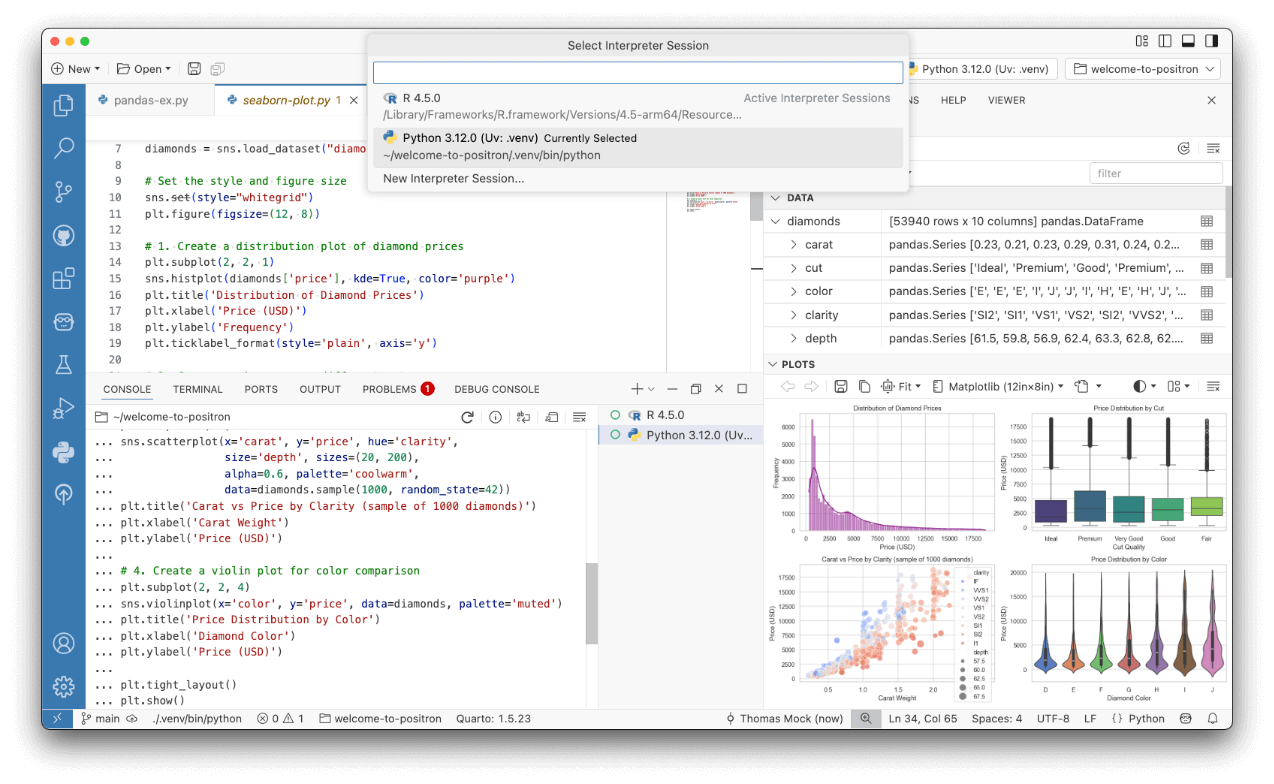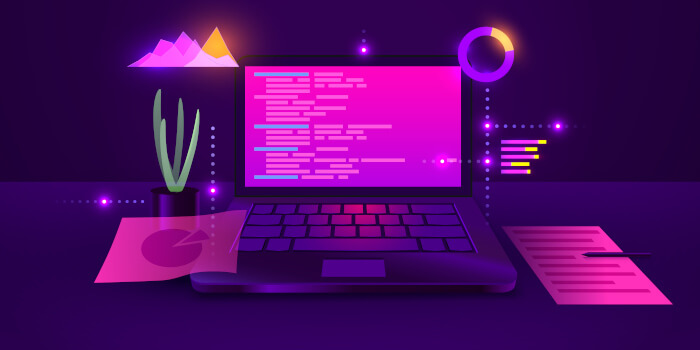Positron is a next-generation data science IDE. It’s also an extensible, polyglot tool for writing code and exploring data.
The software provides a familiar environment for reproducible authoring and publishing.
This is free software.
Features include:
- First-class, built-in support for R and/or Python via an integrated Console, with extensibility options for other languages in the future. This native support includes specialized views and panes throughout Positron such as a Data Explorer, Connections Pane, Variables Pane, and more.
- Runs the interpreter separately from the IDE, so unlike in RStudio a crash in R/Python won’t always crash the IDE. It also means that you can swap between versions of your preferred language on the fly without a full reload of the IDE, just the integrated console.
- Supports VS Code compatible extensions (.vsix files), providing extensibility of capabilities beyond the core IDE itself. By building on Code OSS, Positron gets rich text editor capabilities and access to 1,000s of community extensions out of the box. Read more about using extensions with Positron.
- Deeply focused on native data science workflows; it provides a batteries-included and cohesive experience beyond that of a general-purpose IDE or text editor such as VS Code.
- Positron Assistant is a native GenAI client and offers novel data science and Positron-specific context compared to other IDE AI tooling. It provides a data-science-centric IDE and allow the LLM to interact with the most important parts of Positron to get better context for better results! This includes providing optional information such as the active R/Python session state, defined dataframe or other objects, viewing plots from the plots pane, and the console inputs and outputs.
Website: github.com/posit-dev/positron
Support:
Developer: Posit Software, PBC
License: Elastic License 2.0

Positron is written in TypeScript. Learn TypeScript with our recommended free books and free tutorials.
Return to Graphical User Interfaces for R | Return to Data Science Notebooks | Return to Integrated Development Environments
| Popular series | |
|---|---|
| The largest compilation of the best free and open source software in the universe. Each article is supplied with a legendary ratings chart helping you to make informed decisions. | |
| Hundreds of in-depth reviews offering our unbiased and expert opinion on software. We offer helpful and impartial information. | |
| The Big List of Active Linux Distros is a large compilation of actively developed Linux distributions. | |
| Replace proprietary software with open source alternatives: Google, Microsoft, Apple, Adobe, IBM, Autodesk, Oracle, Atlassian, Corel, Cisco, Intuit, SAS, Progress, Salesforce, and Citrix | |
| Awesome Free Linux Games Tools showcases a series of tools that making gaming on Linux a more pleasurable experience. This is a new series. | |
| Machine Learning explores practical applications of machine learning and deep learning from a Linux perspective. We've written reviews of more than 40 self-hosted apps. All are free and open source. | |
| New to Linux? Read our Linux for Starters series. We start right at the basics and teach you everything you need to know to get started with Linux. | |
| Alternatives to popular CLI tools showcases essential tools that are modern replacements for core Linux utilities. | |
| Essential Linux system tools focuses on small, indispensable utilities, useful for system administrators as well as regular users. | |
| Linux utilities to maximise your productivity. Small, indispensable tools, useful for anyone running a Linux machine. | |
| Surveys popular streaming services from a Linux perspective: Amazon Music Unlimited, Myuzi, Spotify, Deezer, Tidal. | |
| Saving Money with Linux looks at how you can reduce your energy bills running Linux. | |
| Home computers became commonplace in the 1980s. Emulate home computers including the Commodore 64, Amiga, Atari ST, ZX81, Amstrad CPC, and ZX Spectrum. | |
| Now and Then examines how promising open source software fared over the years. It can be a bumpy ride. | |
| Linux at Home looks at a range of home activities where Linux can play its part, making the most of our time at home, keeping active and engaged. | |
| Linux Candy reveals the lighter side of Linux. Have some fun and escape from the daily drudgery. | |
| Getting Started with Docker helps you master Docker, a set of platform as a service products that delivers software in packages called containers. | |
| Best Free Android Apps. We showcase free Android apps that are definitely worth downloading. There's a strict eligibility criteria for inclusion in this series. | |
| These best free books accelerate your learning of every programming language. Learn a new language today! | |
| These free tutorials offer the perfect tonic to our free programming books series. | |
| Linux Around The World showcases usergroups that are relevant to Linux enthusiasts. Great ways to meet up with fellow enthusiasts. | |
| Stars and Stripes is an occasional series looking at the impact of Linux in the USA. | |

